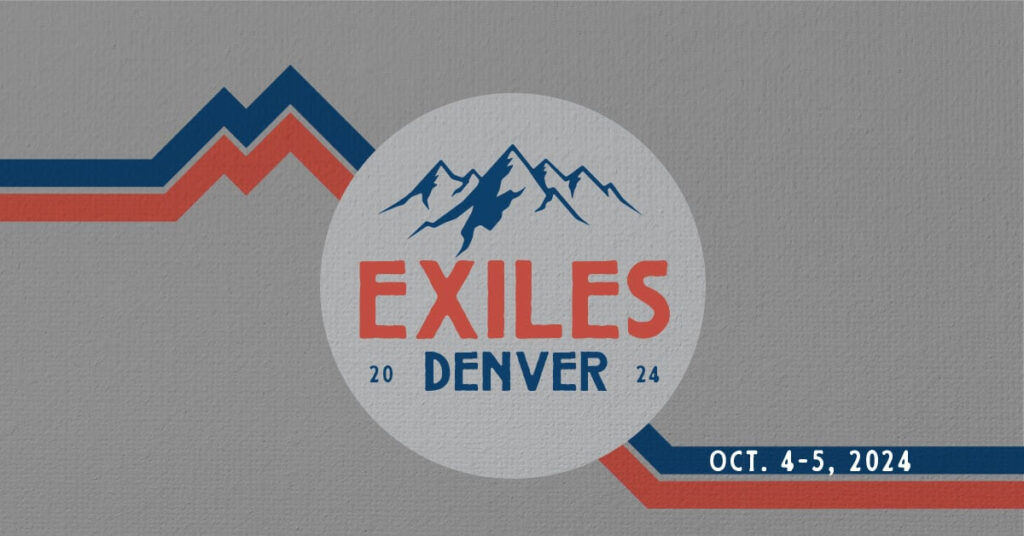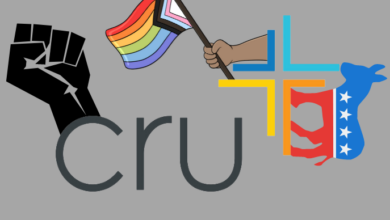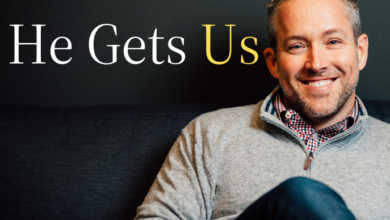Preston Sprinkle’s Conference Promoting Progressive Politics?

I reached out to Preston, and someone close to Preston, offering to travel to Boise to have a conversation with him, and/or to attend “Exiles Denver.” No cameras, no recording, just the two of us talking. The offer has thus far been declined. The offer will remain open.
This article is a podcast tie-in, you can view the podcast here, or search “EWTC News” on your favorite platform.
Now that Preston Sprinkle’s “Exiles in Babylon 2024” conference is over, he is “taking Exiles in Babylon on the road.” We previously raised some concerns over the lineup and framing of Exiles in Babylon 2024, but this “Exiles Denver” conference seems to be even less defensible.
Preston’s philosophy for his “Theology in the Raw” ministry—which puts on the Exiles conferences—is: “To help believers think Christianly about theological and cultural issues by engaging in curious conversations with a diverse range of thoughtful people.” He has further stated that he has no “fear of platforming,” as that doesn’t apply to the nature of what he does.
Preston has repeatedly emphasized the idea that what he’s doing is “having conversations,” rather than teaching, and that all different sides are represented. There is plenty of information that can challenge that description of his work with Theology in the Raw, but Exiles Denver seems to be a slap in the face to his stated positions.
The Questionable Lineup
What is it about “Exiles Denver” that would cause me to raise such a fuss about it? That would be the segment “Discipleship in an Election Year” happening at the conference. There are two big issues with this; being the topic and the lineup.
Firstly, why is the topic an issue? Simply, it torpedos Preston’s argument that these are just conversations and not teaching. The framing of “Discipleship in an Election Year” is one of instruction, answering the implied “How does one do discipleship in an election year?”
It may be argued that the lineup is of a mixed and varied nature, so the audience will get different perspectives. That argument falls flat, as the lineup is so one-sided, that it leads to the title of this article. Firstly, there is Russell Moore, a man who has had much commentary done on him, so we will just mention that he was openly a Democrat until he began climbing the ranks of the SBC. At this point, he dropped the label while continuing the ideologies.

Justin Giboney is very open about himself not simply voting Democrat, but being a politically active member of the party. Giboney has even served as a delegate to the Democratic National Convention. He runs an organization called the AND Campaign, which is not subtle about its hopes to pull Evangelicals into leftist politics.
Christ Butler, who we briefly covered when we looked at Exiles in Babylon 2024, is another politically active Democrat activist. Again, this is not an accusation, but something the man is open about. He co-authored a book with Giboney for the AND Campaign and is a member of the organization. He ran for Congress in 2022 as a Democrat, where he advocated for “LBGT rights” and a “guaranteed basic income” (socialism).
Next is Kaitlyn Schiess, who some may know from clips of the “Holy Post” podcast, where she is one of the co-hosts along with Phil Vischer. Though her political position is not explicitly known, she consistently attacks theological and political conservatives, while promoting theological and politically liberal ideologies. To this end, let’s look at a quote from her blog titled “Sometimes, moving forward requires looking back: white evangelicals and the 2016 election” where she states
I wept for my country. I wept for my friends and neighbors who feel marginalized and afraid. I wept for the deep division and distrust that this election has cultivated. But mostly, I wept for the people all around the country who wanted to tie my faith to a political platform, a hate-motivated agenda, and a man who has given us no reason to trust him. I wept for the people who will drive right by their neighborhood church and feel more fear and anxiety than compassion and grace. I wept for the mangling of my Jesus into a symbol of prejudice and injustice. I wept because I woke up and felt like the place I had called home for so long was a place I didn’t recognize. I wept because that feeling – the feeling that the white American evangelical church is not a safe place – is a feeling many of my brothers and sisters have felt for a long time.
Emphasis added
Kaitlyn Schiess, “Sometimes, moving forward requires looking back: white evangelicals and the 2016 election”
Regardless of political position, is that the type of rhetoric that is useful for helping people understand “discipleship in an election year”? Yet it does well to reveal her opinion of theological and political conservatives, and it is rather extreme.
Finally, there is Derwin Gray, who is by far the most conservative of the five, though I would not feel right saying he is truly theologically or politically conservative. Gray is your more garden-variety “woke“1 Evangelical, at least when it comes to issues of “race.” To quote him:
Overt racism is real. But I am very concerned about the subtle racism that Christians have allowed into their lives.
Emphasis added
I am concerned about the racism through which a Christian does not love their neighbor of another ethnicity as they love themselves. Love is sacrificial and costly, not a platitude that rings hollow.
I am concerned about the racism that produces paternalistic actions of progressives that reveal they think they know what is best for people of color.
I am concerned about the racism that is seen only as an individual sin issue but dismisses the historic systemic racial injustice that is baked into existing structures that have governed American society.
I am concerned about how “homogenous local churches reproduce inequality, encourage oppression, strengthen racial division, and heighten political separation.“
I am concerned about the racism of a Christian who intentionally remains silent in the race of racial injustice toward their brothers and sisters of different ethnicities and about disunity in the church and the broader culture.
Derwin L. Gray, Facebook
Gray does rightfully call out the racism of progressives, yet lays the heaviest accusations upon Christians (with the implication seeming to be theologically and politically conservative Christians). You can see at least the basic point that Gray adopts a worldview, with regard to “race,” informed by Critical Race Theory. He pushes ideas of not just past injustice, but a pervasive system of oppression that is baked into American society. He lays heavy burdens of sin upon American Christians for things as simple as “remain[ing] silent,” about his narrow view of racial injustice, accusing them of being racist.
Gray may not be an open Democrat, but the beliefs he holds with regard to skin color certainly have political implications, especially as they are tied up within leftist (and specifically Marxist) ideologies.
I believe it is very safe to say that this lineup is not balanced or neutral in any way, and favors one side of the political spectrum. As presented, this is not a conference of “curious conversations,” but rather a heavily slanted teaching event.
Or at least that’s the only way I can square the circle, what do you think?
- “Woke” references the use of Critical Theory, a branch of Cultural Marxism, and its derivatives. These include Critical Race Theory, Queer Theory, etc. Woke is a sometimes misused term, but when we use it, we are applying it strictly to the explicit use of Critical Theory, or of people 1:1 employing the tenants. In this case, we argue that Derwin is basing his view of “race” on ideas derived from Critical Race Theory. Hence “woke.” ↩︎



